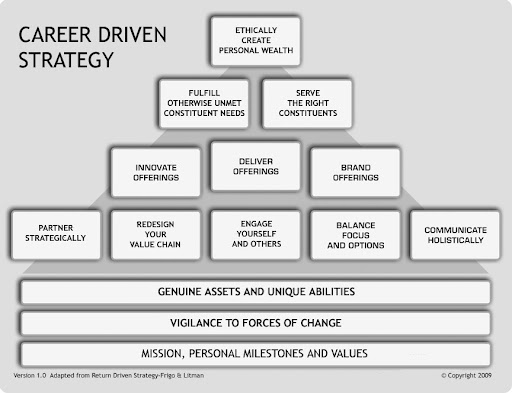Big Bets, Bigger Losses: Here's what you need to know about VC today!
|
|
| Ready? Keep reading below to know more. Big Bets, Bigger Losses: Here's what you need to know about VC today! Let’s open this article with some real talk: Not everything that scales up gets better. In fact, some things lose the very essence that made them great in the first place when they size up. Like a small jazz band ballooning into an overproduced pop act, something gets lost when originality, agility, and risk-taking are traded for size, safety, and spectacle. According to Professor Joel Litman , Chairman and CEO of Valens Research and Chief Investment Officer of Altimetry Financial Research, that’s exactly what has happened to the venture capital (VC) industry.
The Rise and Overreach of VC In a recent eye-opening discussion, Professor Litman delved into how VC has drifted far from its roots. What was once a nimble, high-risk, high-reward investment model aimed at fueling scrappy startups has morphed into a bloated, risk-averse behemoth. Originally, the mission of VC was clear: Place small bets on a multitude of early-stage ventures, expecting a high failure rate but counting on a few breakout successes to make it all worthwhile. In fact, VC firms were the financial engine behind innovation—playing the odds, but in favor of ingenuity. … but today, Professor Litman warns the model has been diluted. The industry has ballooned into a USD 1.2 trillion machine, more than five times its size in 2009. What else? With growth came consolidation. The small, fast-moving firms that once made the space dynamic are now overshadowed by massive players that defy the VC playbook altogether. Additionally, Professor Litman points to the stark contrast between new-age VC giants like Andreessen Horowitz and old-guard firms like Benchmark Capital to highlight the industry’s divergence. While Benchmark continues to operate lean—raising similarly sized funds as it did two decades ago and staying true to smaller, diversified investments—Andreessen has amassed USD 44 billion in assets. This scale gives larger firms more influence but also ties them to a more conservative, less flexible strategy. Picture this: When bigger players take the wheel, the bets get larger, and the willingness to support the unpredictable early stages of innovation tends to shrink. … and when these massive bets go wrong? The fallout can be spectacular. To illustrate just how far VC has strayed, Professor Litman revisits one of the most infamous cautionary tales in recent investing history: The SoftBank Vision Fund. Once hailed as a game-changer, the fund raised a jaw-dropping USD 100 billion and invested like it had something to prove. SoftBank’s USD 18.5 billion bet on WeWork crashed hard when the company’s IPO failed, and internal issues surfaced. WeWork’s valuation tumbled from USD 47 billion to USD 8 billion, and eventually slid into bankruptcy. SoftBank’s USD 9.3 billion investment in Uber didn’t fare much better. After going public, Uber’s share price plummeted, and by the time SoftBank exited, it had suffered a major loss. Altogether, the Vision Fund posted a staggering USD 52.5 billion in losses over 2022 and 2023. According to Professor Litman, the takeaway here is simple: Massive funds making massive bets might generate headlines, but they rarely generate consistent returns. A Broken Model in an Unforgiving Market Professor Litman states rising interest rates have made life even harder for traditional VC firms. Smaller outfits, already at a disadvantage in the shadow of industry titans, now face mounting pressure from tighter financial conditions. Those that can’t adapt or absorb losses are being squeezed out, leaving the big players with even more control AND even less incentive to return to VC’s original spirit. As these giants double down on late-stage, lower-risk deals, early-stage innovators are being left behind. … and when VC stops taking risks on young companies, it stops being venture capital in any meaningful sense. What’s even worse? Those same large firms have pivoted toward avoiding risk altogether! However, in doing so, they’re accepting diminished returns—the very thing VC was never supposed to settle for. So, in such a time as this, where should investors turn? For those still hungry for the kind of high-upside potential that venture capital once offered, Professor Litman suggests shifting focus to the overlooked world of microcap stocks. He says unlike VC, the microcap space hasn’t been flooded with institutional capital. Most large investors are barred from entering until stocks reach a certain size, leaving the tiniest public companies open for savvy individuals and smaller funds to explore. These opportunities remain underpriced, underanalyzed, and unflooded, making them one of the last truly inefficient segments of the market. That’s why for Professor Litman, if you’re looking to replicate VC’s early edge without jumping into today’s bloated VC ecosystem, microcaps might just be the answer. — Overall, the venture capital industry is facing a serious identity crisis. Once a dynamic, daring force for innovation, it now resembles the private equity world it once sought to differentiate itself from—big, slow-moving, and obsessed with scale over strategy. For investment professionals, the message is clear: Don’t be dazzled by the big names or the big numbers. After all, the most exciting opportunities are often found where few others are looking. Right now, that’s NOT in venture capital! At present, it’s in the uncharted corners of the market, where true venture still lives. Hope you’ve found this week’s insights interesting and helpful. EXCITING NEWS AHEAD The world of work has shifted, and there’s no going back. The barriers to entry have never been lower for talented professionals to work independently, and today’s massive external workforce is hardly a pandemic-produced fad. Business owners can only survive in the new work landscape by partnering with this deep talent pool. With decades of experience in both small-business entrepreneurship and executive management at PwC, I truly believe that the future of work is independent. With that, I’m happy to share with you that my book, co-authored with Walter Scott Lamb, is now available on Amazon! Free Birds Revolution: The Future of Work & The Independent Mind This new bestseller is an essential read for both independent professionals and corporate executives. Here, we provide educational and practical guides to unpack the ever-growing workforce and offer you crucial ways to become a client of choice. Click on the link above to order your copy. Let this bestselling book help you future-proof your career and organization in the new world of work. Stay tuned for next Wednesday’s The Independent Investor! Selling below cost is usually a recipe for financial disaster… unless a company pursuing this strategy is backed by a government. Learn more about predatory pricing and state-backed enterprises in next week’s article! |

Miles Everson
CEO of MBO Partners and former Global Advisory and Consulting CEO at PwC, Everson has worked with many of the world's largest and most prominent organizations, specializing in executive management. He helps companies balance growth, reduce risk, maximize return, and excel in strategic business priorities.
He is a sought-after public speaker and contributor and has been a case study for success from Harvard Business School.
Everson is a Certified Public Accountant, a member of the American Institute of Certified Public Accountants and Minnesota Society of Certified Public Accountants. He graduated from St. Cloud State University with a B.S. in Accounting.



